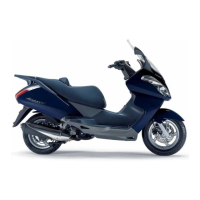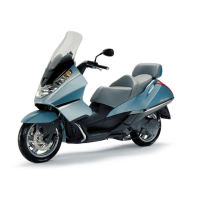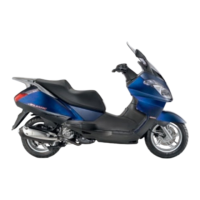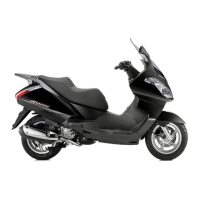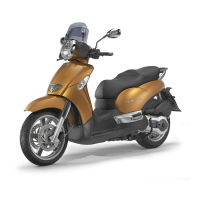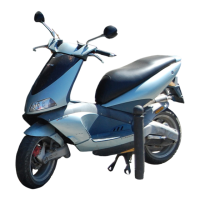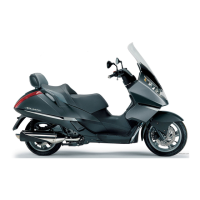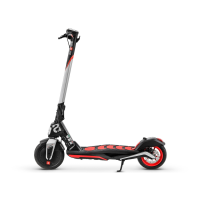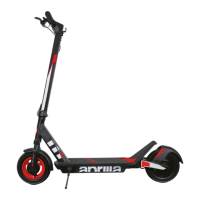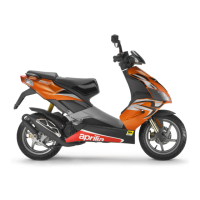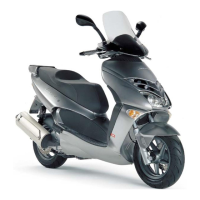ROUTINE MAINTENANCE
2 - 9
ATLANTIC 125 - 200
2.4. BATTERY
2.4.1. BATTERY
Carefully read
1.2.1.
Two different types of battery are available on the market:
- battery needing to be maintained with plugs;
- maintenance-free battery without plugs needing no
electrolyte level check and topping up.
After the first 1000 km (621 mi) and then every 6000 km
(3728 mi) or 8 months, check the electrolyte level and the
terminals correct tightening.
DANGER
The battery electrolyte is a toxic, caustic
substance containing sulphuric acid and thus
able to cause severe burns in case of contact.
Always wear protective clothes, a mask and/or
eye protectors when handling this fluid.
If the electrolyte gets in contact with the skin,
carefully wash the parts of your body that get in
contact with the fluid with abundant fresh
water.
In the event of contact with your eyes, carefully
wash them with water for fifteen minutes and
then consult immediately an eye specialist.
Should you accidentally drink some fluid, drink
abundant water or milk, then drink magnesia
milk or vegetable oil and consult immediately a
doctor.
Battery releases explosive gases.
Keep flames, sparks, cigarettes and any other
heat source away from the battery.
During recharging or use, make sure that the
room is properly ventilated and avoid inhaling
the gases released during recharging.
KEEP AWAY FROM CHILDREN.
Take care not to lean the vehicle to avoid
dangerous spills of the battery fluid.
WARNING
Never reverse connection of the battery cables.
Connect and disconnect the battery with the
ignition switch in position “
”.
Connect first the positive cable (+) and then the
negative cable (-).
Disconnect following the reverse order.

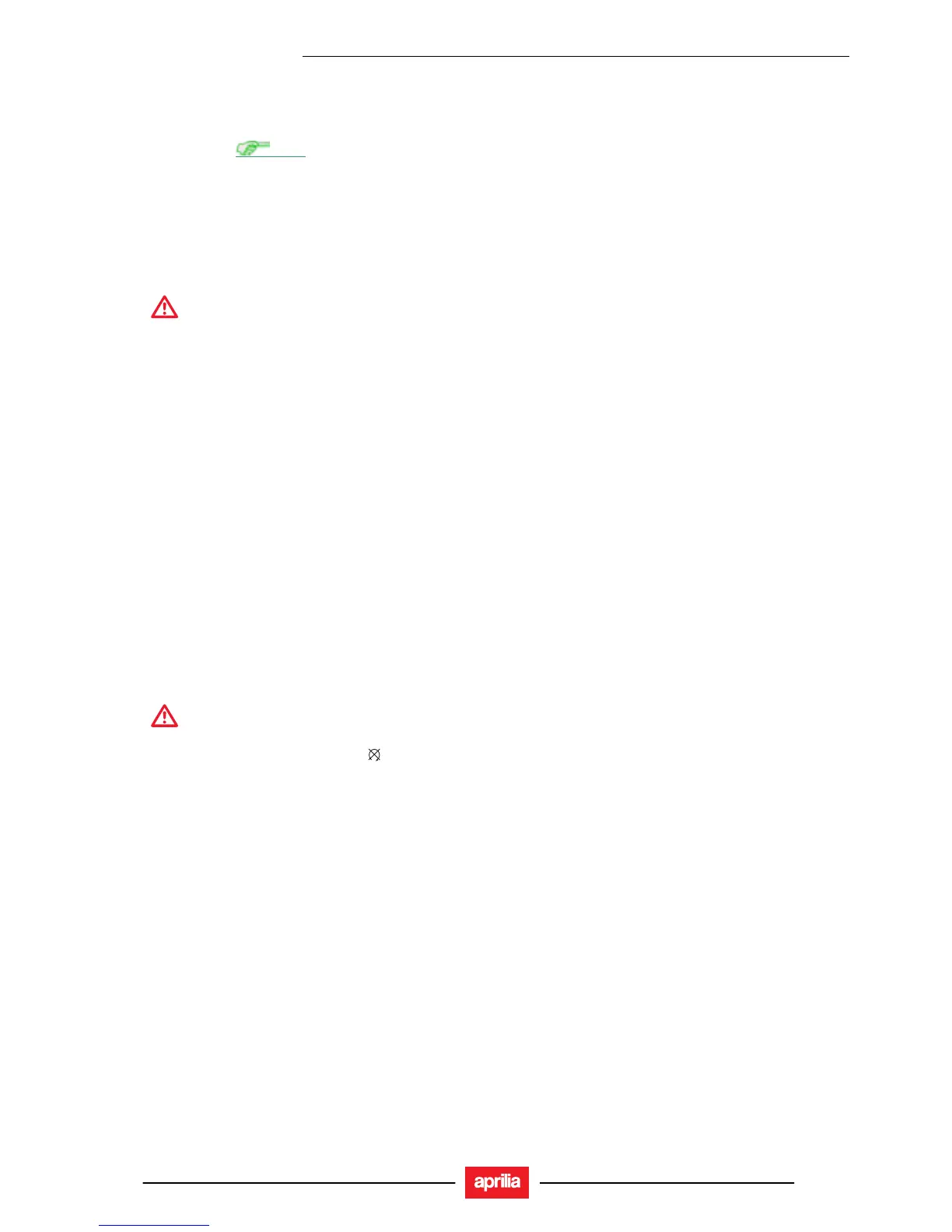